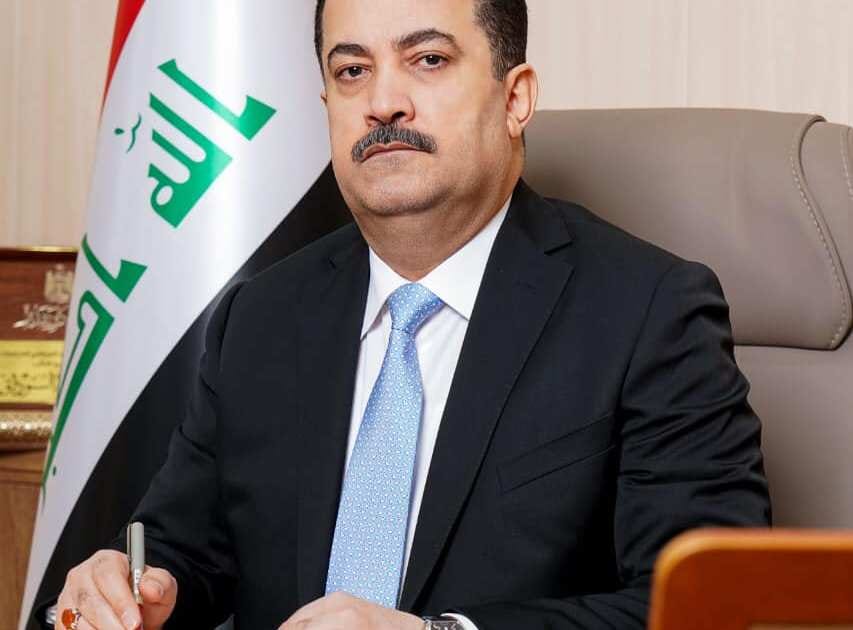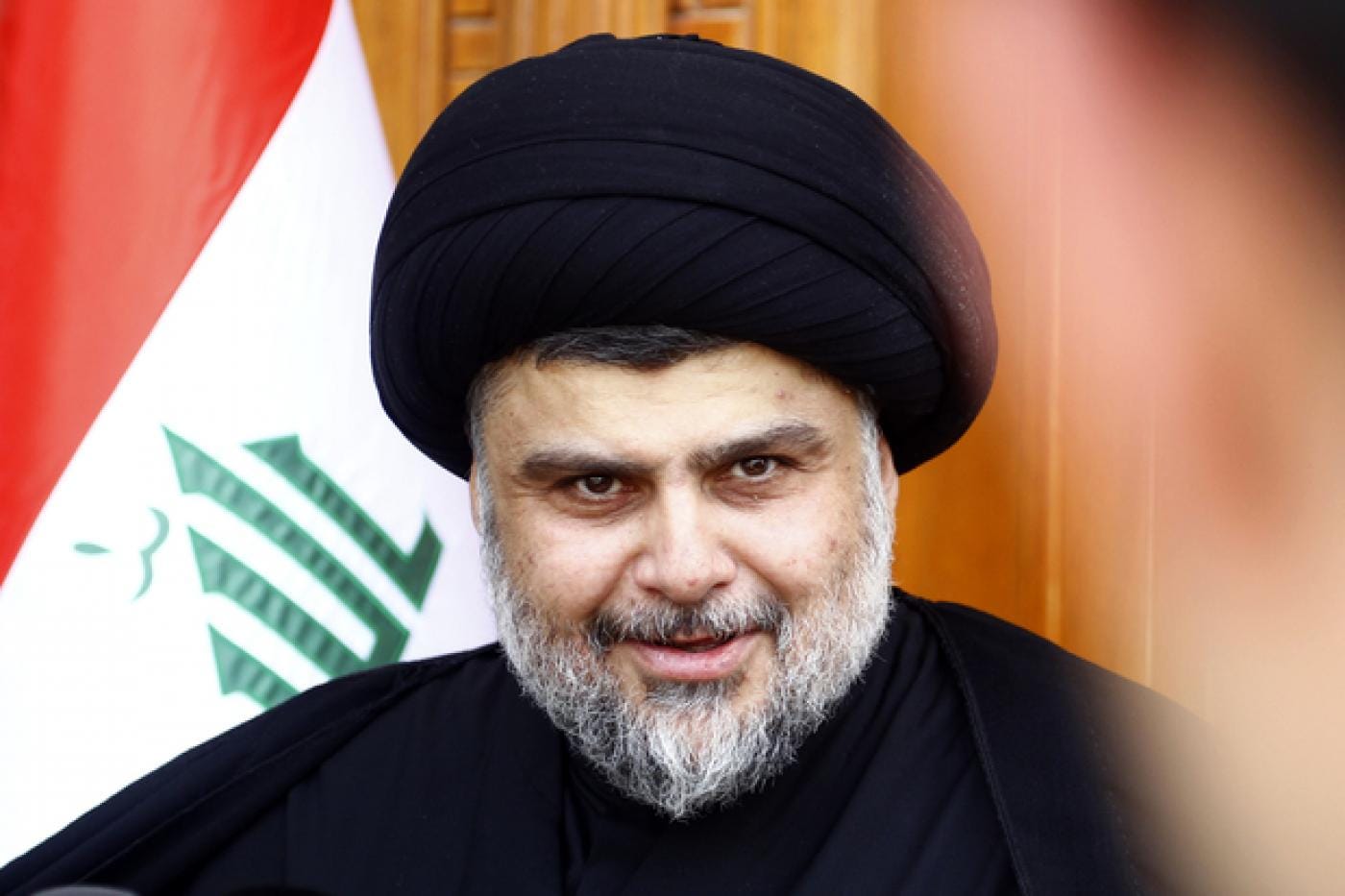On October 27, Iraq finally ended its year-plus stalemate (elections were October 10 of last year), and elected a new government. Unlike earlier governments, Iraq’s newest—under Prime Minister Mohammad Shia Sudani—confirmed all of its nominated ministers in one swoop. The 21 nominated ministers easily received a majority in parliament, while the two lagging ministries—Environment and Municipalities/Housing—were not filled due to inter- and intra- Kurdish issues. Once nominated (one by each of the major Kurdish parties), those ministers should be easily confirmed.
Prime Minister Mohammad Shia Sudani
Iraq dodged a bullet, as did US interests in the region. The largest winner of Iraq’s elections—the Sadrist Movement of Muqtada al Sadr (though Sadr did not and never does run personally)—emerged with a healthy 73 seats (of 329), though far short of the 91 won by Ayad Allawi in 2010 and/or the 93 won by Nouri al Maliki in 2014. Sadr (yes, the Sadr best known for his Mahdi Army’s killing of Americans, Iraqi Sunnis and others in Sadr City, Najaf and elsewhere from 2004-2011) attempted to put together a majority government—essentially locking out all other Shi’a parties—by banding together with the Taqqadum party of Mohammad Halbousi of Anbar, and Masoud Barzani’s Kurdistan Democratic Party (KDP). Together, this alliance assembled almost 200 seats—more than the 165 required to form a working coalition, but short of the 2/3 majority of 220 required to elect a President. So Sadr—true to historical form—did something deeply rash and impulsive and simply ordered all his parliamentarians to resign. The cult-like following that Sadr enjoys ensured that the command was followed.1
Muqtada al-Sadr
Once Sadr’s parliamentarians resigned, their replacements (the nearest runner up in the election) were then seated, the vast majority of them from the umbrella organization—The Coordination Framework (The Framework, CF, or just “The Frame”)—that had formed to encompass all the traditional Shi’a parties (meaning virtually everyone not a Sadrist, an independent, or in one of the new “Tishreen” [October] reform based parties). The new majority created by this influx of parliamentarians from The Framework was able to reaffirm the Speaker of the Parliament, elect a President and then confirm a full government, with support from most major Sunni and Kurdish parties.
Sadr demonstrated his unsuitability to be at the center of government formation on at least three fronts. At level of group dynamics, the mass resignation of his followers indicates he should be considered more a cult leader than a politician. At the level of prudential governing skills, his ordering the mass resignation indicates both poor judgment and a temperament for rash, unvetted actions inconsistent with running a modern state. And finally, at the level of policy, Sadr proved to be more concerned with ideological purity for Iraq on the Israel-Palestine question—using his parliamentary majority to push an anti-Israel normalization bill—than any question of reform. While some pointed to Sadr as a potential bulwark against Iran, at the end of the day, he proved to be more radical on the key divisive issue—that of the Israeli state—than even Tehran. In short, American nearly had to deal with an Iraqi government controlled by an irrational, unpredictable actor—though on questions of both Israel and “occupation” (the American military presence) he has been quite consistent. Policy, and negotiation, requires some semblance of predictability in the opposite party.
That said, the Iraqi political scene is complex and there are necessary compromises in this government that many Americans find hard to swallow. The Coordination Framework represents all the traditional Shi’a parties, from those most friendly to America and the West, through those most friendly to Iran. Reflecting this diversity, three ministries are controlled by parties whose leaders are sanctioned by the United States, either as designated terrorists, or under the Magnitsky Act—the Shi’a Qays Khazali (Higher Education), the Sunni Khamis Khanjar (Trade), and the Christian Rayan Kaldani (Immigration). This is undeniably problematic for the United States, and will create issues for both Embassy Baghdad and Washington when attempting to engage on these files. Our friends in Iraq must understand that even if their internal politics require giving ministerial positions to these factions, there will be a price to paid internationally—perhaps subtle, perhaps less so.
However, on the other side of the ledger, there are a number of highly encouraging appointments from a Western perspective. At Interior, Former Army Lieutenant General Abdul Amir Al-Shimmery is well known to generations of US military officers, having served most recently as the Deputy Commander of the Joint Operations Center alongside members of the anti-ISIS coalition (CJTF-OIR). This appointment is particularly notable as there were whispered fears that a Hashd-affiliated figure would take over at Interior. At Finance, Taif Sami—most recently the Deputy Finance Minister under Ali Allawi—was earlier this year named a 2022 “International Woman of Courage” by the US State Department. At Health, Dr Salih Hasnawi previously served as Health Minister during the first Maliki cabinet, and has served as a Parliamentarian on the health committee for years (full disclosure—Dr Salih is a personal friend). At Industry, Khaled Battal, the recent Minister of Planning steps down from his Deputy Prime Minister post (concurrent with planning) to take up this key ministry. And finally, KDP stalwart Fouad Hussein retains his post at the Ministry of Foreign Affairs.
Ultimately, the names are far less important than the capability to execute one general priority—some sort of visible improvement for the lives of ordinary Iraqis. This government will be judged on its ability to actually execute more than any earlier government, as it has a de facto (though not legal) opposition standing in the wings—the Sadrists. The Sadrists will be incentivized to call out (at a minimum!) failures of this government at any opportunity, so it would behoove the Prime Minister and his cabinet to give as few opportunities to do so as possible. Inability to change traditional dysfunction will not play well in the next electoral cycle—whether that is in one year or three.
What is often lost on American policymakers is that a functioning Iraq is the only truly effective way to check Iranian ambitions in the region. An Iraq with strong institutions will soon tire of being a plaything for neighboring states. So long as a government is devoted to strengthening the Iraqi state, it is—consciously or not— advancing US interests in the region. Conversely, a government unable to mobilize political will to build institutions is not advancing US interest, no matter how friendly the face of that ineffective government may be.
Finally, there will be tests for this administration. And fate (or conspiracy) has immediately put a crisis on the Prime Minister’s plate—the murder of American citizen Stephen Troell. Sudani has promised an immediate investigation into the killing, but this will be a quick test of crisis response, and control of the security apparatus. Iraq’s security services must immediately find both motive and perpetrators, and justice needs to be swift. All eyes will be on the Prime Minister as he manages this disturbing incident.
These are interesting days in Iraq. Prime Minister Sudani has promised a government characterized by anti-corruption efforts and provision of services, primarily via completion of long-delayed infrastructure projects. These issues—as well as improving relations with Washington—were what the Prime Minister emphasized when he and I spoke in late September in Baghdad. Of course, both Iraq watchers and Iraqis have heard this story before. It remains to be seen whether Prime Minister Sudani, and the coalition he leads, are cut from a different cloth, or whether the Iraqi system is simply too entrenched for change. Both internal and external dynamics for Iraq are shifting but harnessing these forces will be immensely challenging. All Iraq watchers can do is wait and see if the results are different this time, or whether dysfunction and corruption will continue to be the key watchwords.
On the Sadrist movement, the latest report from my friends at Chatham House is must-read. https://www.chathamhouse.org/2022/10/sadrist-movement-iraq




